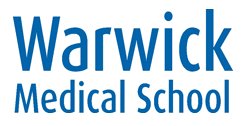
The Medical School at Warwick was established in 2000 as part of an expansion in the number of Medical Schools nationally to deliver the additional capacity needed to support the Government’s plan to increase the number of UK trained medical graduate’s joining the NHS.
The undergraduate MB ChB course at Warwick is a four-year graduate entry programme which requires entrants to already have a 2:1 first degree in any subject or equivalent.
The Medical School’s research is focused around three divisions: Health Sciences, Biomedical Sciences and the Clinical Trials. Collaboration within and outside School and University is encouraged and investigators are encouraged to work across traditional disciplinary boundaries in innovative ways.
The Warwick Medical School works closely with many departments across the University for both our Research and Education programmes; these include the Department of Life Sciences, the School of Health and Social Studies, the Department of Sociology, the Department of Statistics, Warwick Business School, Warwick Manufacturing Group and the Department of Mathematics.
2.3 Research at WMS
Warwick Medical School is established in a University that is undertaking international calibre research. Research conducted at WMS is centred around three Divisions:
Division of Biomedical Sciences
The Division of Biomedical Sciences is composed of clinically-minded academics (biologists, chemists, engineers, biophysicists and bio-informaticians) and academically-minded clinicians (hospital doctors) who work in collaborative teams across disciplines to understand the molecular basis of human disease and to design clinical treatments for, and effective point-of-care diagnostic tests for the early detection of, todays’ most pressing medical problems. For further information, please visit our website at http://www2.warwick.ac.uk/fac/med/research/biomedical/
There are three broad research programmes:
Division of Health Sciences
The Division of Health Sciences integrates work from societal, social, psychological, organisational and bio-medical perspectives in its research and teaching. It is comprised of five units:
The research focus of the Division is on the design and evaluation of interventions (behavioural, medical, technological and organisational), plus how the application of knowledge in these areas change clinical practice and ultimately health outcomes. Our research includes applied health services research, methodological development/application of health sciences, evidence synthesis as well as relevant theoretical enquiry.
Warwick Clinical Trials Unit
WCTU was established in 2005 and received full registration from the UKCRC Registered Clinical Trials Units Network shortly after. WCTU’s vision is to lead world class clinical trials which transform the lives of patients. We value integrity, excellence, collaboration, respect, courage and innovation and efficiency.
Key to WCTU’s success is its embedded mixture of clinicians alongside methodologists and trials administration staff. We believe this adds richness and unique perspectives to our work.
Over the last decade WCTU has grown organically to deliver a wide portfolio of clinical trials. Our core clinical themes encompass:
WCTU has influence across the clinical trial landscape with staff members on five NIHR panels, seven advisory boards such as NICE, NIHR HS &DR, PGfAR and EME boards, as well as NIHR clinical trials fellowship panel and CRUK clinical trials fellowship committee.
We have a strong track record of leading world class clinical trials leading to over 250 publications including New England Journal of Medicine, Lancet, JAMA and BMJ.
Warwick University Academic Foundation Programme
At University Hospitals of Coventry and Warwickshire (UHCW), a state of the art PFI hospital opened in June 2006. This provides an optimal environment to support both research and education at the Trust and is where many of our AFP trainees are based The Clinical Sciences Building and the Clinical Sciences Research Institute provide a base for education and laboratory research for the Medical School.
The Medical School works closely with the West Midlands South Foundation School (Foundation School Director: Dr Emma Wales) in delivering training to foundation doctors. Each subspecialty has its own clinical teaching and education programme.
All academic rotations occur in the second year of the AFP and are taken as a single block in either block 1, 2 or 3 depending on the programme chosen.
|
Employing Trusts
|
Foundation Year 1 Posts
|
Employing Trusts
|
Foundation Year 2 Posts
|
No of Trainees in Rotation
|
|
|
Clinical post in Academic Unit
|
Clinical Post
|
Clinical Post
|
|
Academic Post
|
Clinical Post
|
Clinical Post
|
|
|
University Hospitals of Coventry and Warwickshire (UHCW)
|
General Psychiatry
|
General Surgery and Upper Gastrointestinal Surgery
|
Anaesthetics
|
University Hospitals of Coventry and Warwickshire (UHCW)
|
Endocrinology & Diabetes Mellitus
|
Respiratory Medicine
|
Gastroenterology
|
3
|
|
(Research)
|
|
|
|
(Dr Barber)
|
|
|
|
University Hospitals of Coventry and Warwickshire (UHCW)
|
General “Internal” Medicine and Endocrinology & Diabetes Mellitus
|
Respiratory Medicine
|
Upper GI Surgery/Renal Transplantation
|
University Hospitals of Coventry and Warwickshire (UHCW)
|
Trauma & Orthopaedic Surgery
(Research)
(Assoc Clin Prof Metcalfe)
|
Public Health
Medicine
|
Trauma & Orthopaedic Surgery
|
3
|
|
|
|
|
|
|
(Warwickshire County Council)
|
|
|
|
|
|
|
University Hospitals of Coventry and Warwickshire (UHCW)
|
Trauma & Orthopaedic Surgery
|
General Internal Medicine and Endocrinology & Diabetes Mellitus
|
General Surgery & Colorectal Surgery
|
University Hospital Birmingham NHS Foundation Trust
(UHB)
|
Public Health Medicine
(Research)
(Associate Professor Oyinlola Oyebode)
|
General Practice
(Leyhill Surgery)
|
Emergency Medicine
(Birmingham Heartlands Hospital)
|
3
|
One of the strengths of the foundation year 2 rotations in Coventry is the very strong Generic Skills Programme that is offered on Thursday afternoons. It is generally located at the Clinical Science Building at the UHCW, and attendance is compulsory for all F2 trainees.
Academic FYs receive additional quarterly half-day training and covers a range of topics to help in research training (organised by Adele Kenny Adele.Kenny@warwick.ac.uk and Siobhan Quenby (s.quenby@warwick.ac.uk) IAT lead and Joyce Yeung (j.yeung.4@warwick.ac.uk), IAT Deputy. In addition, AFYs are asked to present their research to the academic trainees to encourage networking and collaboration on research ideas. Further details about AFP at Warwick can be found here along with exemplar ACF and CL projects.